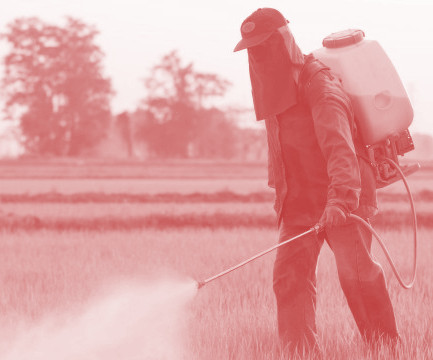Roundup case raised
 Hundreds of Australians are alleging in court that exposure to Roundup led to their diagnosis of non-Hodgkin lymphoma.
Hundreds of Australians are alleging in court that exposure to Roundup led to their diagnosis of non-Hodgkin lymphoma.
A potentially groundbreaking trial, set to last nine weeks, aims to determine the carcinogenic potential of Roundup's primary ingredient, glyphosate.
The class action centres on whether Monsanto and its Australian division, Huntsman Chemical Company, now known as Monsanto Australia, were negligent in disclosing the health risks posed by their products.
Most of the plaintiffs, predominantly from the agricultural sector, claim exposure during their work activities. However, some cases involve domestic users who applied Roundup around their properties.
Andrew Watson, national head of class actions at Maurice Blackburn Lawyers, says Monsanto and Bayer, its parent company, have been dismissive of scientific evidence indicating health risks associated with their product.
He accused them of prioritising profit over public health.
The lead plaintiff, Kelvin McNickle, was diagnosed with non-Hodgkin lymphoma in 2018, underwent intensive treatment, and achieved remission in 2019. Tragically, Mr McNickle's cancer resurfaced just six weeks ago.
In court, Andrew Clements KC, representing the plaintiffs, claimed that Mr. McNickle was exposed to two Monsanto Roundup products, Roundup Herbicide and Roundup Bioactive, during his childhood while assisting his father in weed-killing activities.
The exposure allegedly occurred through direct contact, including skin and clothing contact, as well as inhalation of mist.
Both products contain glyphosate as the active ingredient, along with surfactants to enhance its absorption into plants.
Mr. Clements argued that these surfactants also increased absorption through human skin into the bloodstream.
He claimed that glyphosate caused genetic mutations in human lymphocytes and damaged human DNA, contributing to the development of non-Hodgkin lymphoma.
The plaintiffs contend that any exposure to Roundup Herbicide and Roundup Bioactive elevates the risk of non-Hodgkin lymphoma, with the duration and intensity of exposure directly correlated to the risk increase.
Steven Finch SC, representing Monsanto and Bayer, stated that their defence would focus on scrutinising the reliability of scientific studies concerning glyphosate's carcinogenicity.
He cautioned against assuming that any substance capable of causing cancer necessarily would cause cancer.
Roundup continues to be sold in Australia, and Bayer maintains its safety claims despite this legal challenge.







 Print
Print